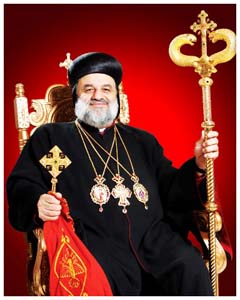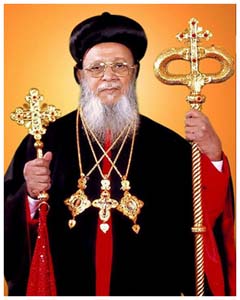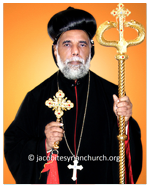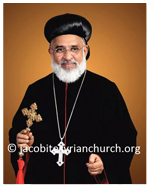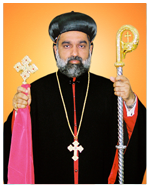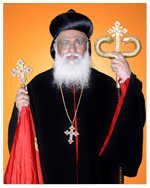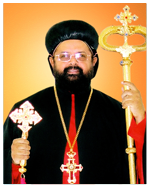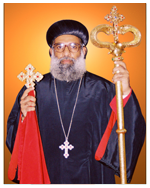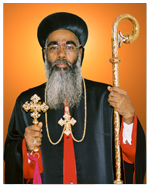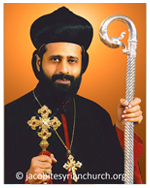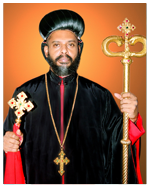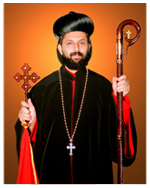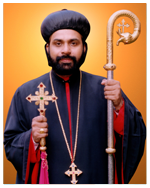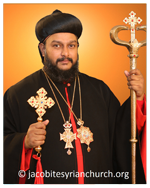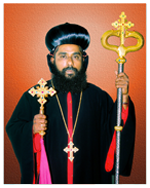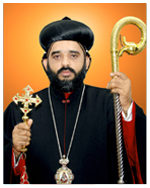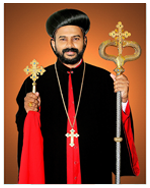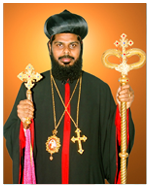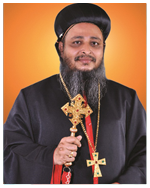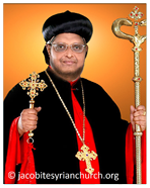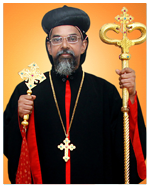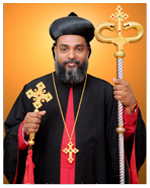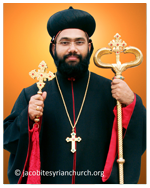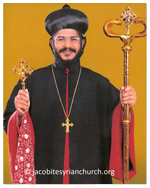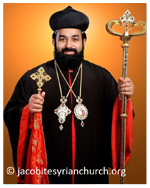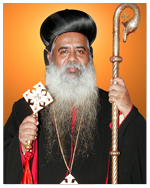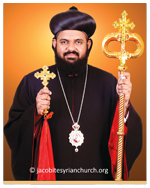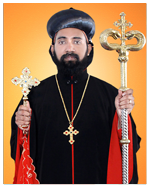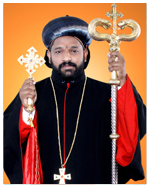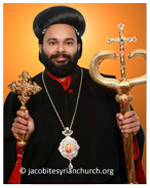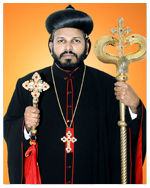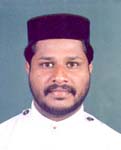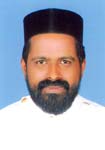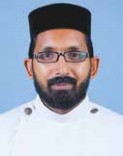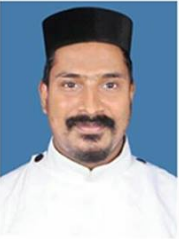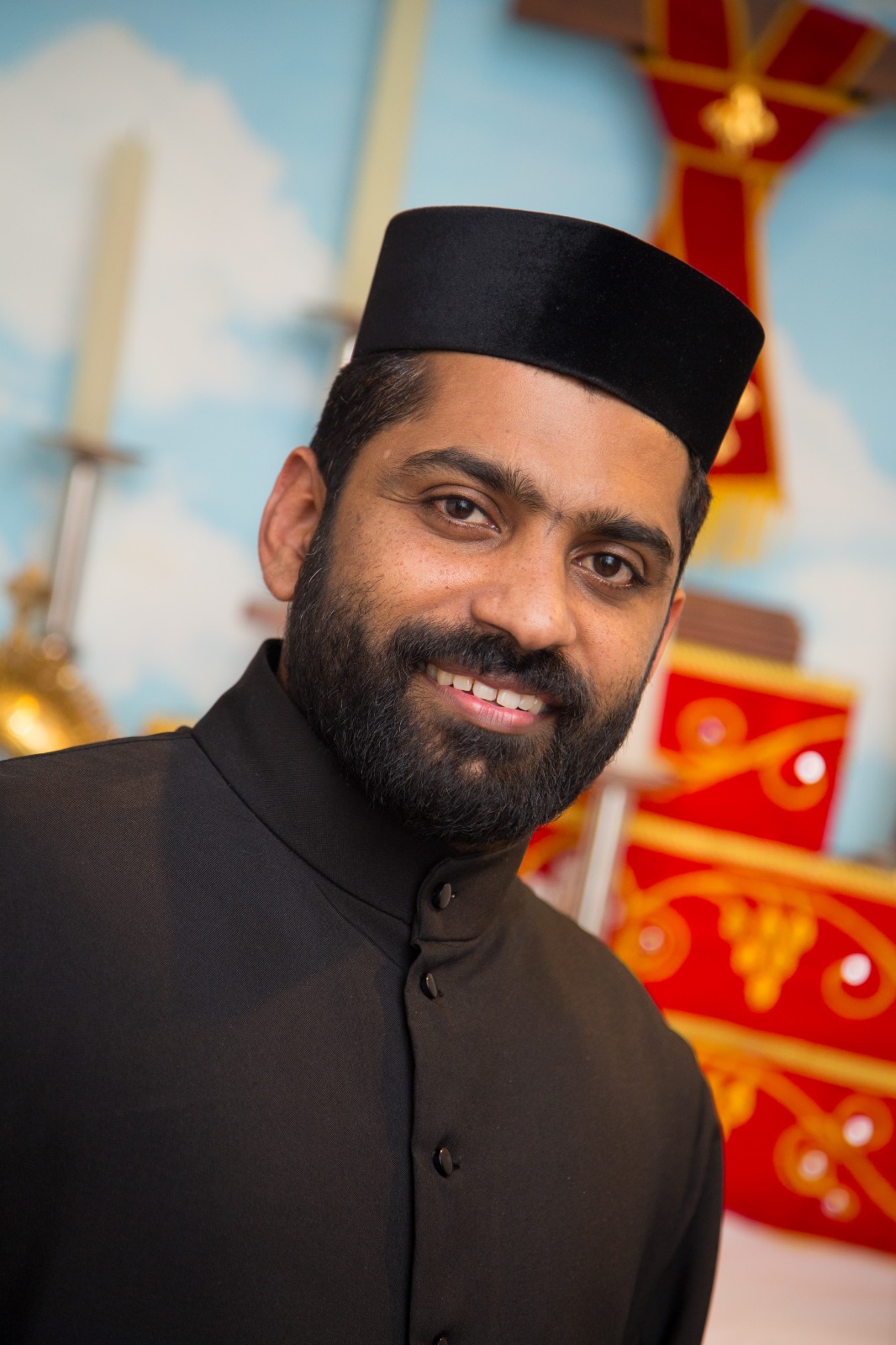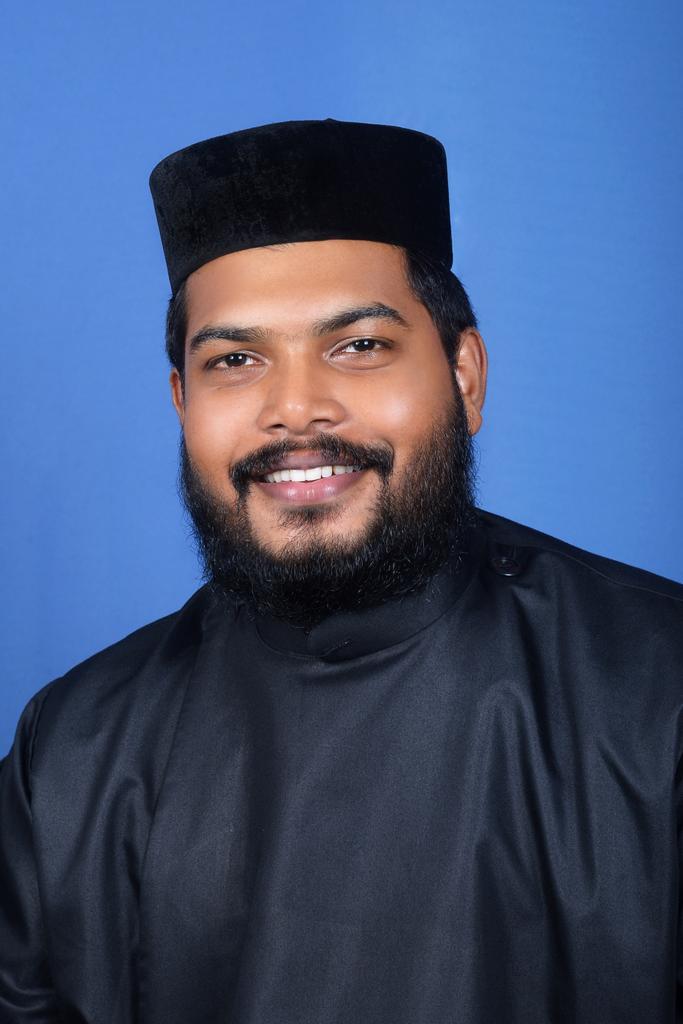Parish History
With the Blessings of His Holiness Moran Mor Ignatius Yacoub III, the Patriarch of Antioch & all the East and under the auspices of H.G. (Late) Dr. Paulose Mor Athanasius (Kadavil) the formation of the Parish along with Holy Qurbana and Convention was held on the 14th September 1973, the feast day of the Holy Cross, at the Kuwait Holy Family Cathedral.In 1974 the Parish was registered with the National Evangelical Church of Kuwait (NECK) with 84 active members (including Arab Syrian Orthodox believers). Since then our worship services, Sunday School Classes and other church programs are being conducted at NECK.
Rev. Fr. Varghese Arackal who was appointed as our first vicar, led us from 1973 till 1978. He was followed by Rev. Fr. P.M. Geevarghese (1978-1989). Under the spiritual guidance and supremacy of the Patriarchate of Antioch and all the East, the able leadership of Diocesean Metropolitans and vicars our parish has flourished from a small group to one of the largest parishes in the Gulf region within a short span of time.
In 1998 we celebrated the Silver Jubilee of the Parish. It is worthwhile to mention that as part of the Silver Jubilee Celebrations, our Parish financially supported 26 poor girls from our various dioceses in finding their life partners. We also opened an Endowment Fund at MSOT Seminary, Mulanthuruthy to provide financial assistance to the needy students.
REESH CHURCH (VALIYA PALLY)
To recognize Kuwait's St. George Universal Syrian Orthodox Church's prominence as the first Syrian Orthodox Church in Kuwait and its true allegiance and devotion to the holy Patriarchal throne of Antioch and the All East, the church has been blessed and elevated to "Reesh Church" (Valiya Palli) by H.H. Ignatius Zakka I Iwas, Patriarch of Antioch and All the East. The public declaration of this was held on the 3rd of December 2010 at NECK with all pomp and glory.
St. George Universal Syrian Orthodox Church Kuwait, established in 1973, is the mother church of the two other Syrian Orthodox Churches in Kuwait. St. George Universal Syrian Orthodox Church, Kuwait was established with the blessings of His Holiness Moran Mor Ignatius Yacoub III, the patriarch of Antioch & all the east under the auspices of H.G (late lamented) Dr Paulose Mor Athanasus (Kadavil).
As part of the official declaration of the blessed 'Kalpana', the church is organizing a Holy tri-mass with H B Baselious Thomas I Catholicose as the Chief celebrant assisted by H G Mathews Mor Thedosius Metropolitan, the Patriarcal Vicar for Kuwait Parishes and H G Mathews Mor Aprem Metropolitan at NECK at 6 AM in the morning and a Public Meeting at 7 PM at the NECK. The public meeting will be attended by well known dignitaries and religious leaders.
Patriarchal Vicar H.G. Mor Theodosius Mathews Metroplolitan and H.E. Mor Mathews Aprem Metropolitan were also present during the press meet to brief about the "Reesh Church" declaration. St. George Universal Syrian Orthodox Church, Kuwait was established in 1973, with 13 Jacobite Malayalee families owing allegiance to the Patriarch of Antioch, for worship and to cater to their spiritual needs.
Currently the church is having 800 families with around 3000 members.
Our Faith
The faith of the Syrian Orthodox Church concludes faith in Holy Trinity, in the incarnation of the Son of God, divine origin of traditions in Holy Bible, in Nicene Creed, in the seven sacraments (Baptism, Confirmation/Mooron, Holy Eucharist, Penance, Ordination, Matrimony, Unction of the sick) intercession of St. Mary and Saints, prayer for the departed, prayers, fasting, lent, Apostolic succession of St. Peter through the throne of Antioch. The church approved the first three ecumenical councils - Nicea, Constantinople and Ephesus. The Nicene Creed is the official creed of the Church.The Holy Qurbana (Eucharist) is the queen of all sacraments according to the Syrian Orthodox Church tradition. To perform the seven sacraments the Syrian Orthodox Church has fixed written prayers and symbolic signs. The prayers used in the sacraments and all other liturgies are fully based on the Holy Bible and filled with theological concepts.
Syrian Orthodox Church
The Syrian Orthodox Church is the Church of Antioch, whose foundation goes back to the very dawn of Christianity, when Antioch was the capital of Syria and one of the three capital cities in the Roman Empire. The Syrian Orthodox Church of Antioch is held to be the first church in Christianity established by the apostle St. Peter in 37 A.D. After the establishment of churches in Jerusalem, Apostle St. Peter came to Antioch, established his throne and built churches. It was in Antioch that the followers of Jesus were first called Christians. "The disciples were first called Christians In Antioch" (Act. 11:26). To preach the gospel from Antioch St. Peter travelled to Tyre, Sidon, Caesaria, Beirut, Tripoli, Pontos, Galatia, Cappadocia, Bithunia, Asia etc. Before his missionary travels he consecrated Evodius and Ignatius and appointed them as his successors in Antioch. February 22 is considered as the date of the establishment of the Throne of St. Peter at Antioch.The Syrian Orthodox Church is the only church that has preserved the ancient culture and language of Syria, together with the valuable literature and liturgies of the ancient Apostolic Church of Antioch. The Church enjoys the greatest prestige in the history of Christendom and the wealthiest liturgical and musical heritage, besides a proud theological and missionary record. The Church still uses Syriac-Aramaic, the language spoken by our Lord Jesus Christ. It suffered untold hardships, persecution and tragedies including massacres and repeated transfer of the Patriarchate from one place to another due to political and other developments until it settled in Damascus in Syria.
The supreme head of Syrian Orthodox Church is the Patriarch of Antioch & All the East. He also presides over the Holy Synod, the assembly of all bishops. The present Patriarch (since 2014) is His Holiness Moran Mor Ignatius Aphrem II, who resides in Lebanon. The Church has about 26 archdioceses and 11 Patriarchal Vicariates. The majority of the members are in India and the rest are spread mainly in Syria, Lebanon, Iraq, Jordan, Turkey, Egypt, Europe, North and South America and Australia.
Since 1293, the patriarchs of Antioch adopted the name Ignatius, after the Illuminator.
The See of Antioch continues to flourish with His Holiness Ignatius Aphrem II Iwas being the 123nd in the line of legitimate patriarchs.
History of Indian Christianity
St. Thomas (one of the twelve Apostles of Christ) founded Malankara Syrian Orthodox Church in Kerala, India. It is believed that St. Thomas came to India, preached the gospel, established Church and died there as a martyr. He arrived in Cranganore (Kodungallore), Kerala, India in 52 A.D., preached gospel and founded churches at seven locations; Cranganore, Palur, Paraur, Gokkamangalam, Niranam, Chayal and Quilon and ordained prelates and priests from four Brahmin families, viz. Pakalomattom, Sankarapuri, Kali and Kalikavu. Later he proceeded to east coast of South India and from there to China and Malacca and on his return he was pierced to death at the modern St.Thomas Mount in Chennai and buried at Mylapore. In the 4th Century his relics were transferred to Edessa (Urha) according to the order of the Patriarch of Antioch. The transfer of relics from India on 3rd July is celebrated by the Syrian Christians in India as St.Thomas Day.In the subsequent years, Christian congregations established by the Apostle weakened in numbers due to the lack of ecclesiastical relationship with the Church that was concentrated mainly in the Middle East. A turnaround to this situation happened in AD 345 when a large Christian group from the Syrian province of Roman empire, arrived in Malankara under the leadership of Knai Thoma. Among the said delegation from the Syrian Orthodox Patriarchate of Antioch included a Metropolitan by name Joseph of Edessa and a few priests who helped in the establishment of the Episcopacy in the Malankara Church. As a consequence of this migration, the entire community in Kerala came to be called SYRIAN CHRISTIANS, thus adopting the rituals and liturgies of the Syrian Orthodox Church of Antioch. The Syrian migrants were called as Knanaya Syrian Christians and the native Christians were referred to as Malankara Syrian Christians.
The local head of church in Malankara (India) is the Catholicose of the East. The Catholicose is under the jurisdiction of the Patriarch of Antioch. He is consecrated by the Patriarch and presides over the Malankara Holy Synod.
The current Catholicose of the East is His Beatitude Baseliose Thomas I.

